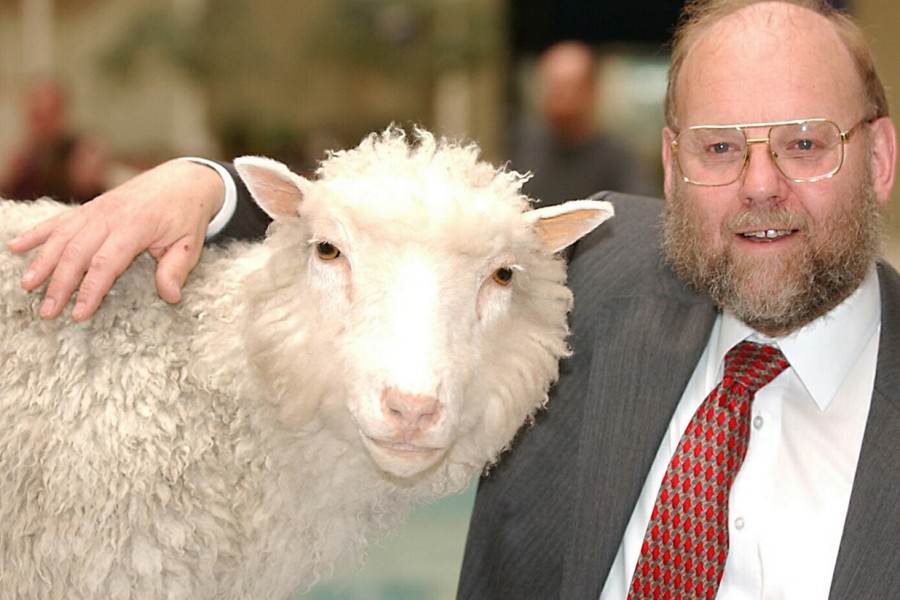Dolly, a cloned sheep, and her creator Professor Ian Wilmut, 2003

Date: 2003
Creator of the image: Maurice McDonald Date of the image creation: 9 April 2003 Medium: Photograph Person depicted: Dolly and Ian Wilmut This photograph of Dolly and her creator Ian Wilmut was taken at Edinburgh’s National Museum. The scientist beams with pride and the sheep mixes a lip-curled smile with rather vacant eyes. Why do Dolly’s eyes seem so vacant? Dolly had been dead a couple of weeks and her body had been taxidermied. This photograph was used widely but no one observed that Ian Wilmut is posing with a dead sheep. Knowing this fact changes the meaning of Ian’s apparent happiness. The ‘world’s most famous sheep’, to use the BBC’s description, was born on the 5 July 1996 and died prematurely on 14 February 2003. She was the first mammal successfully cloned from an adult somatic cell using the process of nuclear transfer. When naming his creation, Wilmut stated, ‘Dolly is derived from a mammary gland cell and we couldn’t think of a more impressive pair of glands than Dolly Parton’s’. The cloned sheep lived until five months before her seventh birthday, whereupon she was euthanized after contracting progressive lung disease. Dolly was then ceremoniously stuffed and her taxidermied remains were put on display at the National Museum of Scotland. Sir Ian Wilmut was a British embryologist and the Chair of the Scottish Centre for Regenerative Medicine at the University of Edinburgh. As a schoolboy, Wilmut worked on weekends as a farm-hand, an experience which inspired him to want to agriculture and led to a lifelong interest in animals. Following this path, he completed a PhD thesis in 1971 with the snappy title, ‘The Preservation of Boar Semen’. With a team at the Roslin Institute, Wilmut collaborated with a biotech company, with funds from the Ministry of Agriculture, to try and clone a sheep. The process of cloning animals is highly inefficient. Dolly was the only lamb to survive into adulthood from another 277 failed attempts. In the decades since, this fail rate has been improved, with the controversial South Korean company Sooam Biotech churning out 500 cloned embryos a day. They specialize in cloning dogs, and charge rich dog-owners up to $100,000 for the cloned ‘resurrection’ of their deceased canine companion.
Quotes
No quotes found.
Login to add a quote